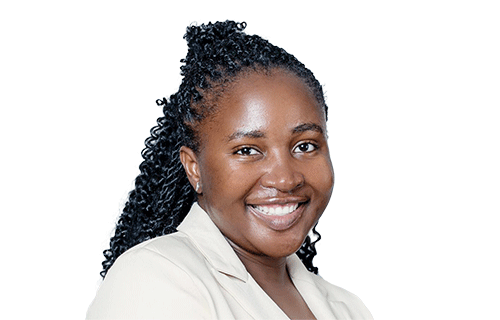In 2019, Alina Kadhila ran to her human resources (HR) officer to resign for no reason.
She was hysterical, as she was going through an episode.
The mental health advocate and service user remembers being grateful that she was in the HR’s office, where she was protected and looked after as she was experiencing this meltdown – not even knowing that it is something associated with mental health.
“They closed the door because they realised what was going on. I understand now that there is someone who could tell what was wrong, and this is the importance of a conducive workplace that knows how to handle mental health-related issues,” recounted Kadhila at the commemoration of International Mental Health Day in Windhoek yesterday.
The geoscientist said one of the HR persons called a family member, who then rushed her to a psychologist. “I don’t know what happened. All I remember is that a family member of mine was sent back with leave of one month. I think I was in such a state that they felt like at least a month is what it would take to deal with whatever I was going through,” she said.
She was also in a wheelchair at one point, unable to properly function, adding that companies are mandated to have policies in place that should adequately address mental health.
“I find comfort knowing that there are places of work that understand how to handle mental health. Most people can tell a difference in a person’s attitude and choose to ignore it, and that’s why I am working on a project that aims to tackle mental health at a workplace in Namibia,” she stated.
She said the prioritisation of mental health is important everywhere to create conducive living and working environments.
“I am very fortunate right now that before I came on this platform, I had to inform my employer about my intention, and we should state that having this condition does not limit you from anything you can achieve. The year I was diagnosed is the year I completed my master’s degree in geohydrology from the University of the Free State,” she boasted.
‘Mental Health at Work’ is the theme for this year to raise awareness and highlight the vital connection between mental health and work.
The World Health Organisation states that depression and anxiety alone result in the loss of approximately 12 billion workdays each year.
Acting chief medical officer of Windhoek Central Hospital Dr Senorita Polster said Kadhila is an example of how one can live positively with a mental illness.
“Mental health should no longer be pushed to the back. We should talk about it. For the past 15 years, the institution has been organising and amplifying information around mental health,” she stated.
We have a collective purpose and responsibility to support the line ministry because no Namibian should die because of mental health.
“If you don’t know how to deal with your employees, we have a dedicated team to assist you on how to go about it,” Polster stated.



